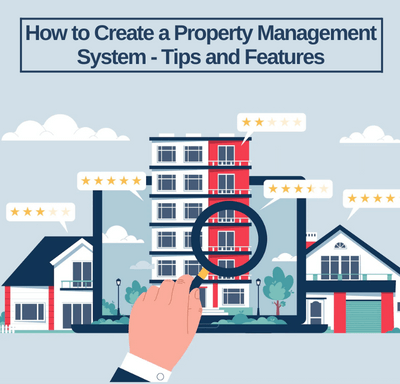
About us
Our Services
Our Expertise
Our Experience
Follow us
Why e2logy?
- We strive to provide superior customer service and ensure that every client is completely satisfied with our work.
- Our engineers are trustworthy, dedicated, and experienced and will go the extra mile to solve your IT issues.
- We are committed to delivering outstanding, cutting-edge IT solutions that add real value that goes beyond what is expected.

How to Create a Property Management System – Tips and Features

Real estate is a sector with high growth potential across the world. Along with the management of the massive volume of information, property owners also maintain listings of current and upcoming properties, as well as buyer information. They benefit from a 360-degree view of their business with an all-inclusive real estate property management software. This tool can help manage real estate operations to the best of its ability.
You can simplify complex processes, attract more customers, and align existing ones with those that you already have with real estate management software. We can help you develop next-generation property management software or enhance your existing platform with our developers.
How do property management systems work?
PMS, or property management system, is a piece of software designed to help the hotel industry with a variety of core tasks, including planning and sales. There has been a significant shift from paper-based processes to software solutions in the hospitality industry.
Hotel managers and other hotel staff can typically manage things like room reservations, restaurant reservations, and accounting details with PMS solutions, even though their exact capabilities vary. In addition to tracking key performance metrics, such as ADR and RevPAR, most property management systems also provide leaders with reports on occupancy rates and rent.
A Property Management System serves what purpose?
Especially since cloud technology has become more mainstream over the last decade, hotel management has become more dependent on property management systems. Using a PMS can result in fewer double bookings and costly errors, as well as the ability to manage calendars easily.
Property management software will allow staff members to automate a variety of mundane administrative tasks and perform many essential tasks quickly. The number of hotels using PMS has soared over the past few years, making manual management an outdated option.
The Property Management System: How to Create It?
It is impossible to develop a system that is a one-size-fits-all solution for property management. The solution needs to be customized based on organizational needs. Consider these factors when customizing your property management system.
Strategic Concepts: Business analysis at E2logy begins with a thorough assessment of the business requirements, the end goals, and the target audience.
Creating wireframes and prototypes: In addition, we assist in the construction of user journeys and flowcharts to construct a better understanding of the user’s requirements. During the prototype development phase, wireframes, low-fidelity prototypes, and visual presentations of the concept are delivered as design deliverables.
Development of front-end and back-end: You can turn your dream into a reality here with our specialists. Solutions we develop are scalable to enable the ability to add features as business requirements demand. For enhanced performance, our Quality Assurance engineers run continuous testing throughout the development stage.
Support after the launch: As part of the post-launch maintenance and support process, updates, patches, and fixes related to security updates, as well as assessing web traffic behaviour are included.
Here are a few tips for property management system
As property managers aim to ensure resident satisfaction, increasing efficiency and optimizing operations are also essential. Using these tips will help you identify areas where your rental property can be improved.
1. Delegate tasks that take a lot of time to others or consider outsourcing
How much time does each task take? Usually, property managers focus on certain tasks, but others are more repetitive and tedious, but they are necessary, nonetheless. You may want to consider outsourcing repetitive administrative tasks to a support employee, app, or service if you find yourself spending numerous times doing them. Outsourcing even one of those tasks can reduce the amount of time you need to spend on each task. The minutes you save over a year will be noticeable.
2. Get feedback from residents
Is there a common complaint among my residents? It is important to understand what common complaints are, or even ask residents what their most desirable amenities are. Renters should have the option of providing anonymous feedback about community concerns via a suggestion box. By responding to complaints and suggestions in a proactive manner, you exhibit your value to current and potential tenants as well as discover operational issues you may not have known existed.
3. Organize your time better
Where can I improve my organizational skills? A property manager is regularly inundated with a variety of jobs and demands, which can be challenging even with good time management skills. Rather than tackling things as they arise, consider scheduling your time or batching them. Numerous apps and services are available to help streamline processes. From rent payments to accepting packages, they can streamline everything.
4. Address residents’ common concerns
Is there anything that causes you trouble regularly? All buildings or communities face problems from time to time. Sometimes it may appear as if one problem will be fixed only for another one to appear shortly after that. Despite that, many communities appear to have problems that appear from time to time for a variety of reasons. These problems can range from package theft to parking problems. You and your tenants should brainstorm possible solutions to the problem, whatever it maybe.
Property Management System key features
Property management systems function differently based on their purpose. Hotel management systems provide online receptionists and housekeeping management features, for example, while industrial property management software monitors assets and inventory.
We will take a closer look at the most essential features of property management systems. We can help you determine what features are best for your property management system if you need assistance.
1. Various user portals
Users of the online property management software can navigate better through portals.
Tenant portal: An online dashboard usually contains information regarding a tenant’s tenancy, outstanding charges, and lease status, as well as options for paying rent online, requesting maintenance, obtaining rent receipts, and contacting landlords.
Applicant portal: Anytime can be a good time to apply for rental properties, sign leases or renew contracts.
Owner portal: Online information on a property can be accessed by property owners. Similarly, financial statements and property inspections should also be available to tenants.
2. Renting online
A property management system allows you to screen tenants, manage tenant moves in or out, customize lease agreements, create as many lease agreement templates as you like, or notify tenants when their leases are about to expire.
You can offer renters the ability to apply online, pay an application fee, and automatically be entered into the applicant database when you integrate property management software into your real estate booking website. Prospective tenants can then be converted to renters.
3. Payments online
Paying online can decrease your time spent on billing, decrease the cost of paper reports and invoices, and make it easier to collect rent by going completely digital.
Online payments need to collect rent online. Your renters will appreciate the convenience and speed of making payments through credit cards or electronic funds transfers (eChecks). It will also be possible to view account balances, scan checks, and receive receipts online for rent payments.
Create automatic emails and notifications that remind you about renter payments.
4. Compiling reports
The purpose of reports is to provide you with information about your business’ progress and future goals. The report includes information on expenses and income, fees and payments, as well as the availability of the property. In a customized property management system, you can add columns, select fields, and sort by various titles to make your reports more personalized. Be sure to include such features as downloading different formats of reports.
5. Managing maintenance requests
In the case of property maintenance, leaks or malfunctions are often encountered. You can resolve these problems quickly and conveniently with online real estate software. Track the status of maintenance requests submitted by renters. Renters can describe the issue, upload photos, and indicate whether the task is urgent by filling out a form application.
Maintenance workers will be assigned tasks, supervision will be provided, and schedules will be monitored by owners.
6. Managing documents
The property management system on your real estate property will store all the property information, tenant information, and financial information about your property. Different types of documents, such as rent rolls, balance sheets, or cash flow statements, can be uploaded, downloaded, and managed with a custom solution. Having a paperless business will reduce some of your daily expenses, as it will make your business paperless.
7. Getting in touch
With a messaging feature built into your property management system, you can send text messages to tenants directly from the record of their contact information. Store the chat history in the system and send emails individually or in bulk.
Conclusion
With real estate software solutions, businesses can automate their daily operations, manage their sales, automate their payments and transactions, and streamline their leasing, all on one platform. As soon as you’ve established your goals, features, and functionalities, you’ll need to find a software development company that can do it all for you.
Digital transformation is occurring in the real estate sector. Businesses in this sector are therefore in need of a fast turnaround and a cost-efficient solution. With its ability to create custom property management software, E2logy develops modern solutions that incorporate advanced features, tools, and functions. We accomplish this by enabling real estate businesses to deliver top-notch services for various types of user requirements.













